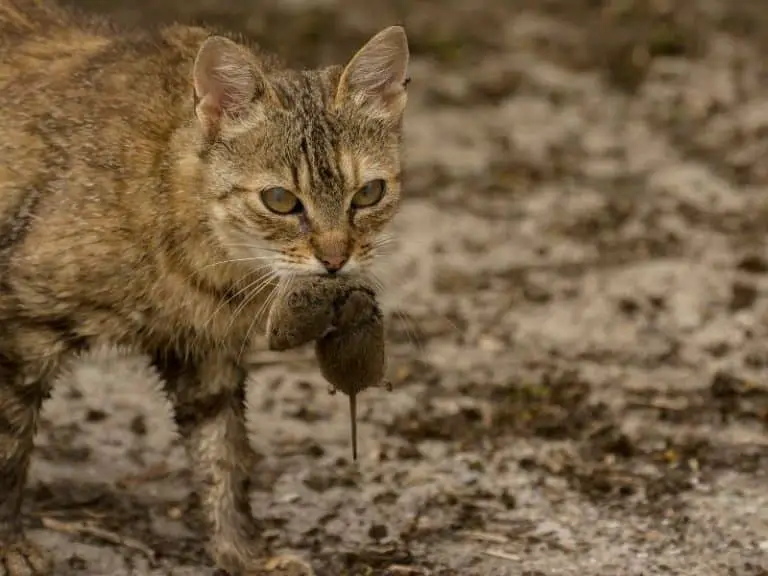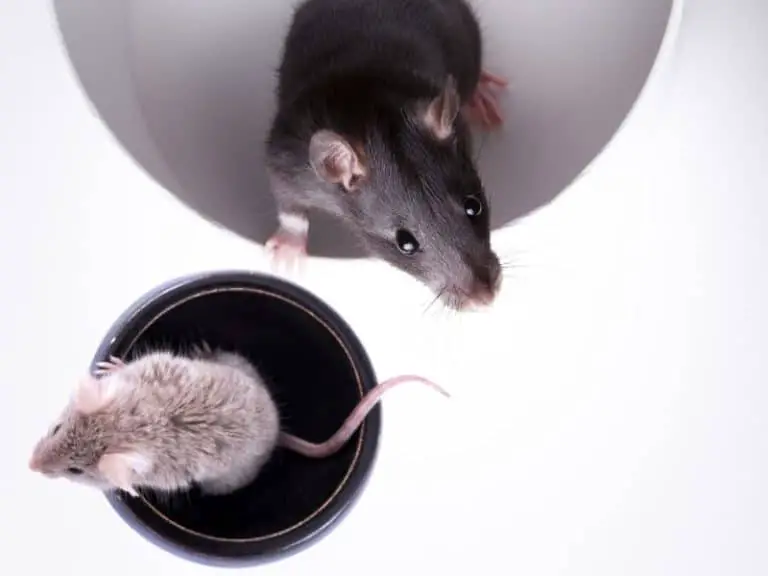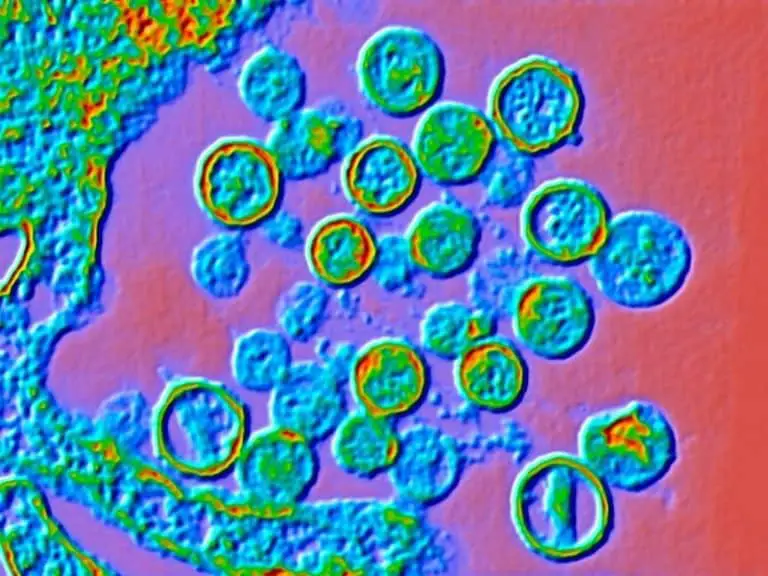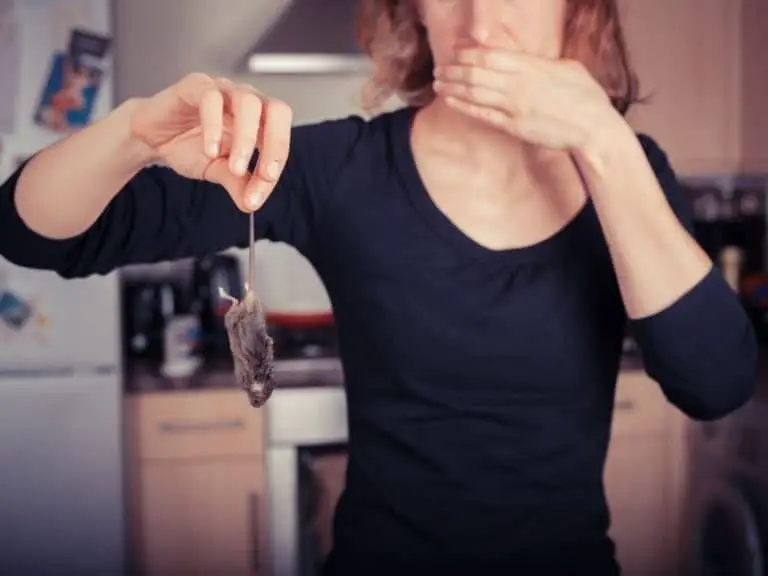Is it Safe to Sleep with Mice in your Room?
Every time people hear that I am a retired pest control expert, they ask me questions such as how to get rid of mice or other pests. Yesterday, one lady told me that she believes there’s a mouse in her bedroom.
Worried and scared, she’s wondering if it is safe to sleep in the room with mice. My answer was simple. It’s only safe if the mice’s names are Mickey and Minnie Mouse.
It is not safe to sleep with mice in your room because these parasite-infested rodents transport diseases. Having them in your room means the potential spread of any pathogens such as Salmonellosis, Lyme borreliosis, typhus, hantavirus, and bubonic plague.
Mice and their Droppings are Health Hazards
Rodent infestations can be dangerous to your health. Hence, it’s the reason why it’s not safe to sleep with mice in your room.
One very common disease that mice can spread is the bubonic plague, also known as Black Death. This is the deadly disease that killed one-third of the European population in the Middle Ages.
Although the bubonic plague is pretty rare these days, there are still several confirmed cases. Bubonic plague can cause fever, headache, and painful swollen lymph nodes. I
t’s still possible to catch the plague when you are bitten by fleas that have fed on an infected rodent. Although it can be treated with antibiotics, it’s critical that you seek medical attention immediately.
The mice in your room can breed bacteria through their feces. The bacteria can trigger asthma and allergic reactions. This is a very alarming aspect of having mice in your room.
The fact is, rodents defecate constantly. Their droppings can accumulate quickly. When they dry up, they can be mixed up with dust.
That could be very hazardous to your health especially if you breathe in some dust that’s contaminated with their dried feces.
Mice can bring other pests including fleas, mites, ticks, and lice indoors. One of the most common bacteria spread by mice is salmonella.
This causes a disease called salmonellosis and it’s manifested by food poisoning. Symptoms of salmonella include diarrhea, fever, and abdominal pain.
Rat-bite fever is another potentially fatal disease. You can catch this when you come in contact with an infected rodent or you take in food that’s been contaminated by it. This particular disease gets even worse since it’s infectious.
Rat-bite fever symptoms include vomiting, headache, rash, and muscle pain. These symptoms usually show up 3 to 10 days after you have been exposed to an infected rodent.
Hantavirus is another potentially life-threatening disease. It can spread to humans through exposure or inhalation of infected rodent urine, droppings, or saliva.
Early symptoms of hantavirus include fever, muscle aches, and fatigue. You may also experience dizziness, chills, abdominal problems, and headaches.
Treatment of Mice-Borne Diseases Vary
It’s critical that you seek medical attention promptly if you believe you’ve come in contact with rodents or their droppings.
Treatments of mice-borne diseases vary depending on the illness and its severity. You may be required to undergo various tests such as stool and blood urine to check for possible infection.
The usual treatment for Salmonella infections is the intake of oral fluids. This is to prevent dehydration. The infection will disappear after 5 to 7 days. Bubonic plague and rat-bite fever usually require antibiotics. In some cases, it might even require intravenous fluids.
While there is no specific treatment or cure for hantavirus infection, patients usually require intensive care. Since they usually suffer from severe respiratory problems, they need oxygen to get them through it.
Hence, mechanical ventilation is needed for them to be able to breathe. So, if you are showing symptoms of hantavirus, it is critical that you seek prompt medical attention.
Mice Look for a Warm Place to Live
It might seem like mice come out of nowhere. They just show up but truth is that there are several reasons why they ended up in your home, specifically in your room.
As temperatures drop, rodents look for different places to live and survive. They seek warmer places. Chances are, they will find a space in your garage.
Eventually, they will have to look for food. It’s for that reason that they will end up in your home. So, if you keep food in your room, they have more areas to explore. They’re not just limited to finding food in the kitchen.
The cold season is also their breeding time. That explains why you’re seeing mice in your room. Aside from the fact that they’re seeking food and shelter in your home, they’re also using your home as a breeding ground.
The fact is, rodents breed throughout the cold season. To make matter worse, they breed incredibly fast. So, while the rodents could have come from outside, the mice could have been bred right in your home.
Signs You Have Mice in your Room
Now that you know that it’s not safe to sleep with mice in your room, you should watch out for signs of their presence. The best possible way to confirm the presence of mice in your room is when you see some droppings.
Keep in mind that these droppings can be hidden. It’s best to look for them underneath or behind appliances. They could also be hidden in your closet.
These droppings look like grains of rice and their sizes vary. Depending on how old the mice are, the color of their droppings may vary as well. It’s important to note that these droppings can lead you to their entry points of infested areas.
The size and shape of the droppings can help determine the size and species of the mice you’re dealing with. The severity of mice infestation is also determined by the number of droppings. In other words, the more droppings, the more mice there are in your room.
When you do see these droppings, be very careful. Since they carry a lot of disease-causing bacteria, make sure to wear gloves when cleaning them. Avoid sweeping or vacuuming them because that can help spread the bacteria.
Aside from droppings, look out for the scent of mouse urine. Unlike the droppings, mouse urine has a very strong ammonia scent. If you do start to smell that, there’s a huge possibility that there are mice in your room.
Another sign of mice in your room is when you hear some scratching and scampering. Sounds of digging noises or high-pitched squeaks indicate the presence of mice in your room.
Look out for damaged electrical wires as this is another sign of mice infestation in your room. Mice chew on electrical wires. They think these are twigs. This can cause an expensive amount of damage on your part. Needless to say, their mindless chewing is a fire hazard.
Mice will also damage the walls of your room. They make openings in the walls, big enough to fit through. The size of these wall openings varies.
It depends on the size of the mice in your room. The bigger the size, the bigger the mice in your room are and that could be pretty scary.
Mice are Active at Night
Now that you know how to look out for mice in your room, you should learn a thing or two about their behavior. For starters, mice are nocturnal pests.
So, when you’re about to sleep, they’re about to start their day. That could get pretty scary for you. Just imagine that while you’re slumbering away, they’re wide awake in your room. Who knows what they can do to you while you’re sound asleep?
Here’s another disturbing fact about mice. They are good climbers. They can easily climb walls, beds, and stairs. Did you know that they can even jump? Yes, they can. That should be enough to give you the chills.
Mice Avoid People
The good news about mice is that they avoid people. Ever notice how they run away when you see them? Try yelling at a sight of a mouse and it will disappear instantly. It’s like magic. You won’t even be able to catch it.
Well, they disappear fast because they avoid human contact. The only time they’ll risk coming close to you is it is when they find something of interest and that’s usually food.
Will Mice Crawl on You while You’re Sleeping?
Mice will only crawl on you while you’re sleeping if they suspect there’s food on your bed. While they do avoid people, they will do anything for food. So, if your bed is a mess, there’s a big chance that mice will climb up and crawl on you while you’re sleeping.
As it is, it’s not safe to have mice in your room. The thought of having them climb your bed is death-defying on your part. You won’t even know they’re on your bed since you’re sleeping. It’s a nightmare that’s come to life.
To prevent mice from crawling on you while you’re sleeping, make sure your bed is clean at all times. Don’t eat on your bed. Even the tiniest food crumb on your bed can get the mice excited.
Better yet, avoid eating in your room. Soon as the mice are awake, they will hunt for the food and find it. Don’t give them any reason to find it.
It also wouldn’t hurt to keep your room clean at all times. Avoid clutter. If you have a cat, make sure it sleeps in your room to keep a close watch on the mice.
Do Mice Bite You in your Sleep?
Mice will only bite you in your sleep if you pose as an obstacle to them. This means that you’re in their way. They’re trying to get to the food crumbs on your bed but you’re in their way. When that happens, there’s a possibility that they will bite you while you’re sleeping.
The fact is that mice bite. That’s how they capture and chew their food. Like rats, their jaw is elongated. There are several reasons why mice bite. The first of which is to eat. The do that by gnawing.
Another reason why mice bite is the fact that their teeth grow. That’s what makes them gnaw all the time. As a matter of fact, they spend five percent of their day gnawing at something.
The third reason why mice bite is that they need to keep their teeth sharp. If their teeth aren’t sharp, they’re not going to be effective. Knowing all that now, you wouldn’t want to be bitten by mice while you’re sleeping.
Will Sleeping with Lights on Keep Mice Away?
Sleeping with the lights on will keep the mice away. Mice have very poor eyesight. They can’t take the bright lights. Keeping the lights on while sleeping can prevent them from moving around your room.
As mentioned previously, mice are nocturnal creatures. They are more active in the night time. They feel safe moving around in the dark because they have less chances of being seen.
It’s their survival instinct. They feel safe moving around in the dark. So, to keep them away, sleep with the lights on.
You Can Avoid Mice infestation
Fortunately, you can avoid mice infestation in both your room and home. There are three steps to avoid mice infestation. The first step is to be sure that you’re dealing with mice infestation.
For all you know, it’s not just mice infestation you’re dealing with. It might also be a rat infestation.
Keep in mind that mice or a house mouse is usually smaller. A house mouse will typically measure around 2 to 3 inches while a rat can be around 7 to 10 inches. It’s also worth knowing that mice also have larger ears for their head size than rats.
If you’re having trouble identifying a mouse from a rat, then look at their droppings. Mice droppings are smaller with pointed ends. You will also notice a smaller tail shaped residue at the end.
Rat droppings are noticeably larger with rounded blunt ends. It’s also worth noting that mouse droppings are more compared to rat droppings. A mouse will leave behind around 80 droppings while a rat will leave about 40.
Once you’re sure that it’s mice infestation you’re dealing with, start focusing on the areas where you’re seeing mouse activity. It’s worth noting that mice never travel more than 30 feet from their nest.
So, if you’re seeing mice in your room, it means their nest isn’t so far away. These are the areas where you will focus your treatment on.
For mice infestation, it’s best to prioritize indoor treatment as opposed to outdoor treatment. The reason for that is because the mice you’re seeing in your room are already feeling comfortable.
They have made your room their abode. Since they have sufficient food and shelter, they rarely leave.
Nonetheless, you should still check the outside structure of your home to see how mice can enter. Check for any crack crevices that mice can use to get in.
Make sure doors and windows are closed properly. Check for any voids around plumbing or vents. These openings present an opportunity for mice to enter your home. Don’t ignore the smallest of holes because mice can enter your home through a dime-size hole.
The third step is to start sanitizing areas in your home. Start sanitizing in the kitchen by wiping down your stovetop and pantry shelves. Stow and seal pet food and other dry foods. Sweep up dirt and food crumbs.
The next area to sanitize is your garage. Declutter it. If you have an attic and a basement, do the same thing. Remove any potential nesting sites
Sanitizing or cleaning is the most important step because you want to remove the reason why the mice are there in the first place.
If you think that the mice infestation is beyond your control, you can always call a pest control company to get rid of it. Seeking professional service to get rid of mice infestation is a lot safer.
Considering how dangerous it is to come in contact with mice, you’re better off hiring a professional pest control service.
Do not ignore the presence of mice in your room. They may be cute at a glance but they’re pretty dangerous to have around. Since they breed at an incredibly fast rate, it’s better to deal with them as soon as possible.
If you don’t get rid of them as soon as possible, you will end up with a bigger problem which is not just gross but dangerous.
So, let me emphasize that sleeping with mice in your room is just not safe. Even if they don’t come near you, their droppings are toxic. Their mere presence in both your room and home is dangerous especially if you don’t take action immediately.
After learning about the dangers of mice infestation, do you think you can still sleep with mice in your room?
Photo credit: ©canva.com/ekaterinapokrovsky
Medical Disclaimer: TheHomePestControl is a digital publisher and does not offer personal health or medical advice. The contents of this website are not intended to substitute for professional medical advice, diagnosis, or treatment.
Affiliate Disclaimer: As an Amazon Associate, I earn from qualifying purchases made on our website. If you make a purchase through links from this website, I may earn a commission at no additional cost to you.






